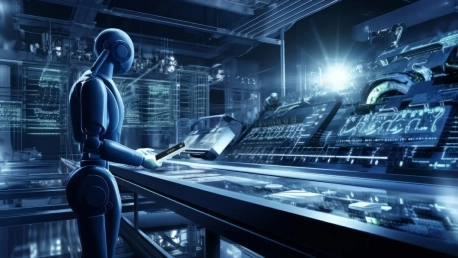Europe’s manufacturing sector is poised on the cusp of a revolutionary shift as it embraces Industry 4.0 technologies. This digital transformation promises to redefine factory operations with a focus on efficiency, insights, and safety. At the heart of this new paradigm lies the concept of smart factories, driven by data and intelligent systems.To stay competitive in the global market, embracing digital innovation is a necessity for European manufacturers. Integrating Industry 4.0 concepts such as big data, the Internet of Things (IoT), artificial intelligence (AI), and robotics is key to leading in the future of manufacturing.
Navigating the Data-driven Future of Manufacturing
The deluge of data from IoT sensors, interconnected machines, and digital systems highlights the need for a strategic approach to utilizing this wealth of information. This strategy should address not only the collection and storage of data but also its analysis and application in driving operational efficiency.Investing in technologies like data aggregation platforms and machine learning algorithms is essential for European manufacturers. Such investments are crucial not only for capitalizing on today’s data potentials but also for future innovations.
Cybersecurity: The Guardian of Digitalization
Industry 4.0’s reliance on data makes cybersecurity a critical aspect of manufacturing. Protecting this data involves rigorous risk assessments, employee training, and robust security protocols. Cybersecurity measures maintain operational safety and enhance the trust of clients and partners dependent on the manufacturer’s digital security.European manufacturers must understand that cybersecurity is imperative in the interconnected ecosystem of Industry 4.0. It’s vital to create a culture of security awareness where every employee contributes to the protection against cyber threats.
Bridging the Digital Divide: Overcoming Transformation Challenges
The shift to Industry 4.0 technologies presents significant challenges, such as integrating legacy systems or managing the cost of new technology. Solutions like cloud services and edge computing, along with a focus on system interoperability, are key in transitioning from traditional to digital, interconnected operations.Upskilling the workforce is equally important. A workforce proficient in digital tools and methods is necessary for a manufacturer’s success. Embracing change and fostering a culture of innovation and learning is crucial for navigating transformation.
Building Flexible and Scalable IT Architectures
Industry 4.0 demands IT architectures that are both robust and adaptable. Modularity, cloud computing, and API frameworks are crucial for a smooth integration of systems. An agile IT infrastructure is essential for responding to market changes and seizing new opportunities.An organization that is adaptable and fosters innovation is as important as the technologies it uses. A flexible IT infrastructure combined with a progressive organizational culture is vital for European manufacturers to thrive in the digital era.









